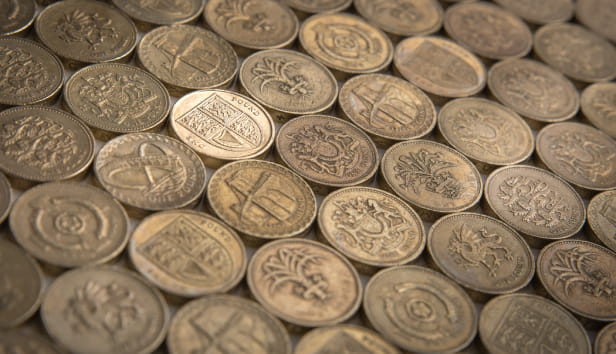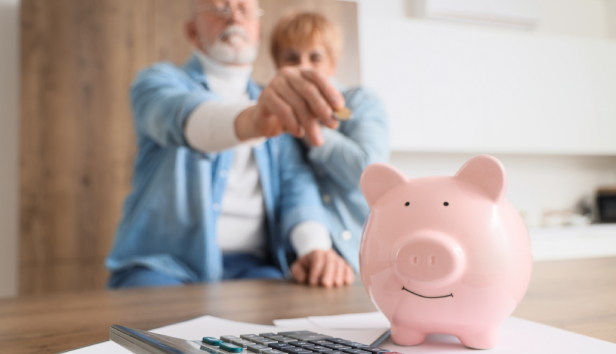.jpg?la=en&h=650&w=1440&hash=D6E11A2938D004BD38DF40EF118137AE)
This article is for general guidance only and is not financial or professional advice. Any links are for your own information, and do not constitute any form of recommendation by Saga. You should not solely rely on this information to make any decisions, and consider seeking independent professional advice. All figures and information in this article are correct at the time of publishing, but laws, entitlements, tax treatments and allowances may change in the future.
Over a lifetime it’s easy to build up a collection of belongings, from clothes, shoes and accessories to books, vinyl and crockery. And there could be some serious value to be had in these items.
Whether you’re clearing out your attic, or dealing with a late relative’s belongings, it’s worth keeping an eye out for items that could be worth more than you thought. Below, we’ll explain what to look out for and how to maximise the selling price.
It can be overwhelming to start a clearout, especially if there are years of treasured belongings in every room. There are lots of methods to try, but it’s a good idea to start small and clear a dedicated area each day.
Trying to do an entire house, or even a room, in one go is a big undertaking and if you take on more than you can manage, you’re probably not going to make much progress.
Karen Powell, professional organiser and founder of The Organising Lady, says it’s important to have a clear goal before you start decluttering. “For example, are you raising money for a specific goal, like a holiday or a special gift? Or do you simply want space and peace of mind? Keeping this goal in mind will help you focus.”
Chloe Jessamy, professional organiser and founder of Clutter Cutdown, says many of her clients are surprised by the hidden value in their possessions – whether that’s forgotten collectibles or heirloom jewellery.
Recently one of Jessamy’s clients found four unopened limited-edition Vogue Italia magazines (the very first edition) and they were worth at least £299 each.
Ceramic figures, lamps, clocks and wartime memorabilia are all examples of apparent clutter that might sell for good money. Here are other popular items that could hold value:
Coins and stamp collections are the most valuable items you’re likely to find lying around an attic – particularly rare 50p coins.
Rare 50p coins can sell for an average price of £11,670 on eBay, with some such as the Benjamin Bunny 50p recently selling after being listed for a whopping £20,000.
Data from Google searches suggests interest in rare 50p coins has shot up in recent months. This is likely the result of media coverage of profitability of the rare Beatrix Potter coins, as well as details from Royal Mint.
The value of an item of jewellery will depend on its age, how rare it is, and its condition, but it’s worth noting the price of gold has recently been reaching record highs.
Auction house Dreweatts recently sold a selection of works by the renowned Russian jeweller Fabergé and his contemporaries for a total of £997,000, with pendants performing particularly well.
A platinum blue sapphire diamond ring sold recently for nearly £18K on eBay. Tiffany and Co. rings also pick up a tidy sum at auction on resale sites, with one selling for just over £4,000. Vintage engagement rings fetch an average of £7,277 on Ebay.
Getting a high price for vintage jewellery generally depends on the item’s condition and whether it comes in its original packaging.
Vinyl records, specifically 1960s vinyl, are selling for nearly £4,000 on eBay in some cases. Recent big-money sales include a promo copy of The Velvet Underground & Nico Yellow LP, which sold for £6,747, the Beatles Please Please Me stereo gold label vinyl for just over £4,000, and a promo copy of Bob Dylan’s Blonde on Blonde album for just over £3,000.
Promo releases (copies of albums or singles distributed for free by record companies before release) tend to do well – with experts suggesting they generally sell for at least 50% more than a standard pressing.
If something is in its original packaging it could be valuable, especially if it’s collectable. Even if the box has long been forgotten about, you may still be able to make some money from an old toy, or even better, a set.
Specific auction houses, such as Vectis, have themed sales. Early Barbie dolls from the 1960s are often sought after by collectors.
Older books, first editions or those with unique details will sell for more than standard paperbacks. If you have a rare title, it’s worth talking to a specialist dealer or auction house.
There’s currently a first edition of Harry Potter and the Philosopher's Stone with a unique binding on sale for £17,500 at Peter Harrington, for example.
A rare first edition of The Hobbit, which was discovered during a routine house clearance, recently sold at auction for £43,000.
You can sell clothes almost anywhere. Vintage items, especially with popular designer labels, make the most money. The condition of the item is important, and if it still has the brand label sewn into the garment.
Clothes with unique or one-off details, such as beading or embroidery, also tend to go for more money.
While working items sell best, there’s a market for just about anything, including old TV remotes and consoles. Don't expect big money, though. A used Panasonic TV remote recently sold for £5.36 on eBay, for example.

If you’re unsure if something has value or not, do a little research and don’t be afraid to ask a friend or family member for help getting started. Powell suggests some potential ways to research what an item is worth: “Visit a house clearance or resale shop, look around a car boot sale, visit local charity shops, browse online marketplaces and visit your local auction house where you may be given a guide price of the item you’re thinking about selling.”
David Joyson, chief customer officer at Homeprotect, says that if you’re an executor for a deceased relative, you should remember to check how much their items might be worth: “If you have financial power of attorney for an elderly relative and/or have been named as an executor for their will, in the event of their death it is worth auditing and valuing items, to ensure you have a complete list of their assets and to understand the value.”
What can push up the value:
Be mindful that you may need to pay tax when selling items. And while they’re still in your home, don’t forget to consider your home insurance.
Joyson says: “It’s incredible how much value can be hidden in everyday items that may have been gathering dust in an old cupboard, garage or attic. If you, or an elderly relative have items like these lying around, or if you come across an item you think may have a high value, it’s worth getting them professionally valued, so you can check that you have the right insurance.
“Many insurers will ask you to specify an individual item on your policy if it’s over a certain value. Not doing this may mean that it wouldn’t be covered if you needed to make a claim.”
There are lots of ways to boost the chances of your items selling. Powell advises that it’s best to stay realistic and to keep your end goal in mind, whether that’s more space or a sum of money.
If you’re selling something online, it’s important to take good photos of it. You will usually be able to include several, and often a video. So make sure you take pictures from different angles, and include details such as the label or any unique features.
Give a clear, honest description. Include key details such as brand, material, measurements, and be upfront about any damage or wear and tear.
If you overvalue an item, it’s unlikely to sell so always look at similar items first, and check how much they are on sale for – or have sold for.
Where you sell your belongings can make a difference to the price. If you have unique items, for example, you’ll be better off visiting a specialist buyer rather than selling them at a car boot sale.
Auctions can be a good way to sell specific items, if there is a themed auction, and you may be able to ask for a guide price first. However, there will be fees and you will need to get your items to the auction house (and take them away afterwards if they don’t sell).
Examples of auction houses include Dreweatts in Berkshire, which handles everything from rare books to jewellery and art, TimeLine Auctions in London, which specialises in ancient art and antiques, and Dawsons Auctioneers, specialising in fine art and jewellery.
If you overvalue an item, it’s unlikely to sell. So always look at similar items first, and check how much they are on sale for, or have sold for.
If you have a rare item – such as a first edition book in pristine condition – it’s worth talking to a dealer skilled in selling similar items.
Specialists in rare books include Forum Auctions in London and Hansons Auctioneers, headquartered in Derbyshire with various salerooms across the UK. Hansons sold a first-edition hardback copy of Harry Potter and the Philosopher’s Stone, bought for £10 in 1997, for £55,104 in December 2023.
It’s quick and easy to reach a big audience with an online sales platform, such as Vinted, Facebook Marketplace or eBay. You’ll need to write a short description and upload photos and then send the item or arrange for it to be collected. There may also be fees to pay.
Car boot sales are held across the country, usually starting early on a weekend day. They can be a great way to get rid of items quickly but prices are usually lower than selling online. Most sales will be advertised in a local paper or online, but you can also search on a website such as Findcarboot.
Decluttering can be a great way to boost your income, especially if you’re not using the items, and it can have other benefits too.
But selling your items often takes time and effort and it can be overwhelming too. Keeping in mind the reason why you are decluttering and being realistic about how much something will sell for, and how long you want to wait for a sale, is important too.
While it requires effort, a successful declutter doesn't just create space in your home – it can provide a welcome and satisfying boost to your bank balance.

.jpg?la=en&h=354&w=616&hash=458B0288E9852F4B63A433E2FDD375E7)

Hunt out those old pound coins and banknotes to see how much they could be worth.
.jpg?la=en&h=354&w=616&hash=653168623B92F3457D40ACA115D37B3E)
.jpg?la=en&h=354&w=616&hash=1254A3F816E81965A47EA68E3AEC9F7A)
